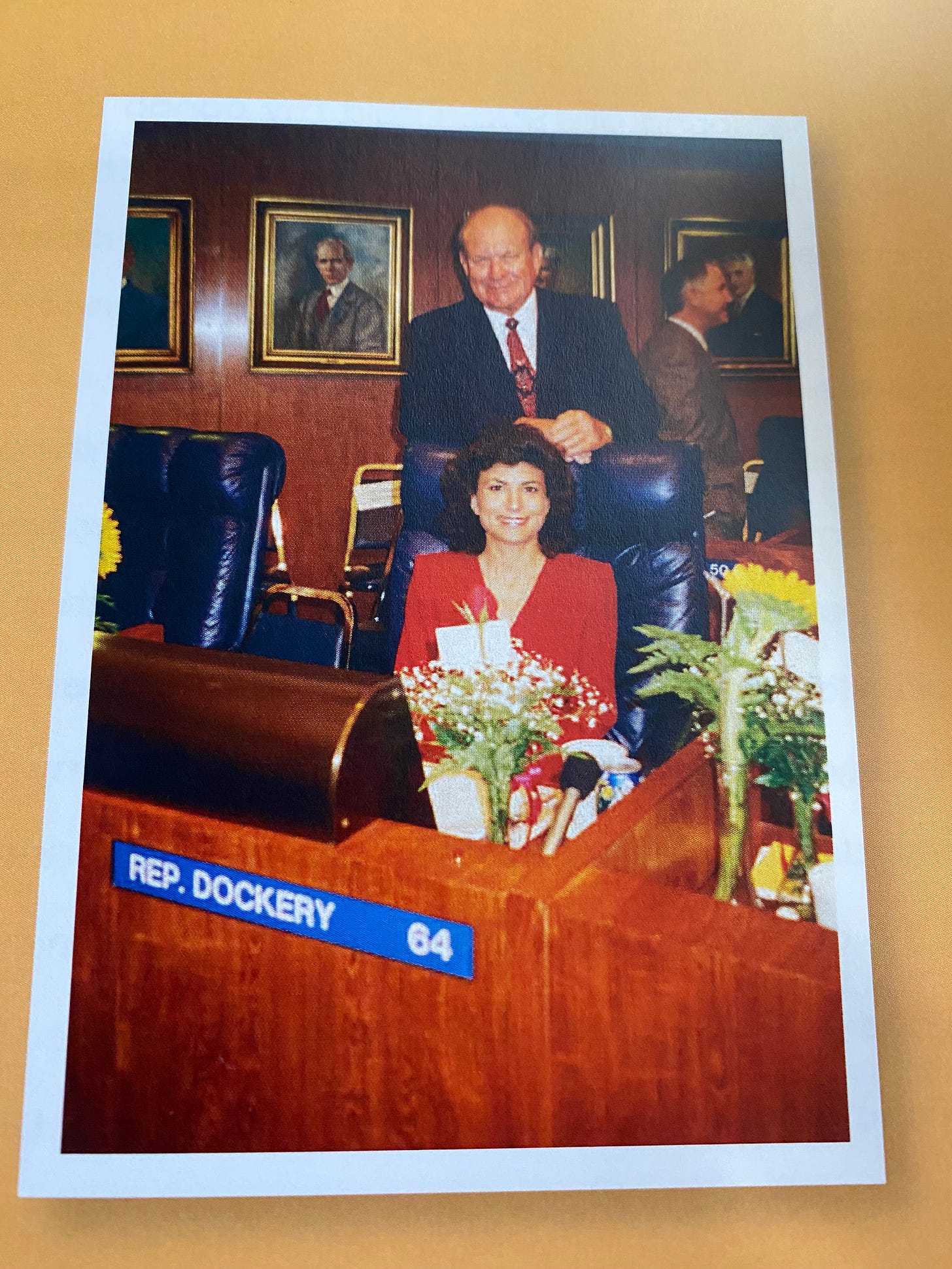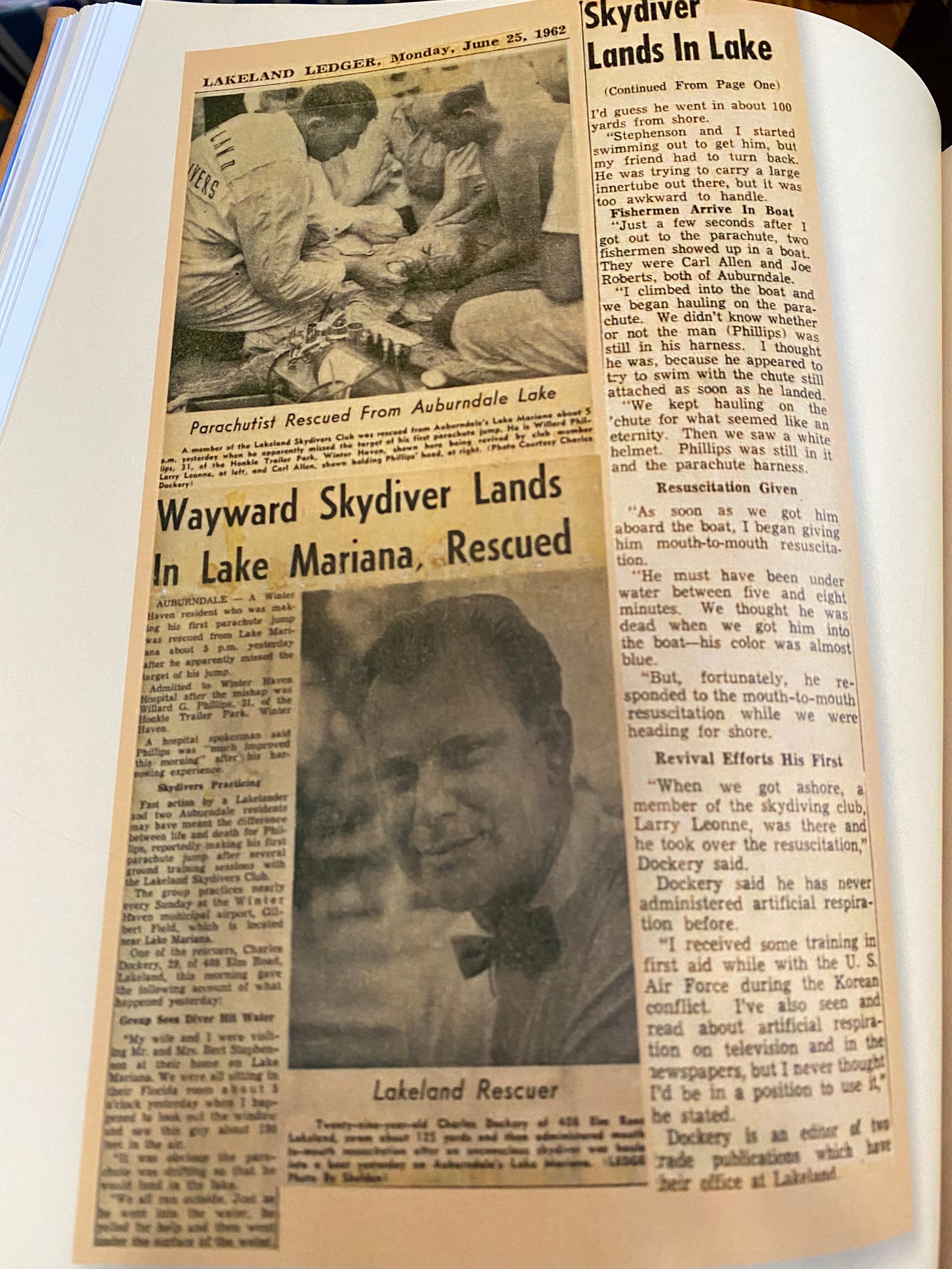The idealistic legacy of Citizen Doc
Doc Dockery was one of the least cynical people I've ever known in public life. He's one of the best American models for connecting politics and wealth to shared citizenship. He will be missed.
“You were a damn good citizen” is the greatest compliment I can pay anyone upon their death — if anyone cares about my compliments. I say it about Doc Dockery, who died last week at age 89, without hesitation.
I got to know Charles Croffard “Doc” Dockery in 2006-08 in my last days as reporter for the now defunct Tampa Tribune. Doc took an interest in my investigative reporting about Jeb Bush’s infamous, taxpayer-funded, $700 million implementation of freight rail giant CSX’s Florida business plan.
I had, of course, known of Doc since moving to Lakeland in 1999. Anyone in public life in Polk County knew of him — and his wife Paula, who represented the Lakeland area in the Florida House and Senate. They were the first couple of Republican politics in Polk County, when Republican politics were quite different and much more constructive than whatever they are now.
By the time my wife Julie and I really got to know the Dockerys — on oddly independent tracks, all connected to CSX fight — their shared, uncynical insistence that politics connect to high quality citizenship was beginning to change how they perceived the morality of the power structure in Florida and Polk County they had helped build.
For Doc, I’m sure the experience of the high speed rail fight with Jeb — which then led to the CSX drama, in which Paula became the central, incredibly effective legislative figure — played a role. It’s a big part of the newspaper obituaries that have marked his passing. (Here’s a good one from the Tampa Bay Times. It lays out the macro, rags-to-riches story of his life better than I could — and somewhat itemizes what he accomplished and what he gave.)
But the high speed rail conflict is too transactional — and too cynical — an explanation for the course of Doc’s public life. It underestimates his life-long commitment to citizenship, which I came to deeply admire, and would like to honor in his passing.
“I never thought I’d be in a position to use it.”
This is an act of basic citizenship — that ended as life-saving heroism.
Back in 1962, when he was just the “editor of two trade publications,” before he was “Doc,” Charles Dockery dove into Auburndale’s Lake Mariana to rescue a wayward, drowning skydiver. See the article above, reproduced from Doc’s delightful autobiography: Country Boy
I love the “But I stayed in a Holiday Inn Express last night” vibe to this:
“I received some training in first aid while with the U.S. Air Force during the Korean conflict. I’ve also seen and read about artificial respiration on television and in the newspapers, but I never thought I’d be in a position to use it," [Dockery] stated.
There is a charming, matter-of-fact innocence to that. Of course, I jumped in the lake and rescued the guy with CPR I’ve seen on TV. That’s what you do.
As near as I can tell, Doc’s life is replete with moments like this — not literal life saving moments — but endless human and civic observations that amounted to: this could be better than it is; and I’m in a position to do something about it.
More often than not, he did something.
For a number of years, Doc and I might have had different takes on what “better” meant. But that began to converge over time. And he once told me — as one school board member to another — that he pitched Jeb on a very different, far less punitive public education model than the disastrous one Jeb adopted in 1998, which has led to the near destruction of public education in Florida.
And I do not for a second question Doc’s sincerity in always thinking his “better” genuinely meant better — even for the libs — when it differed from mine. Indeed, I think that’s why his “political beliefs” changed — because his civic beliefs and commitment never did.
Political power was always the means, not the end
Winning in politics and business requires a certain amount of toughness and ruthlessness. One should not be naive about that. I’m sure other folks at various times experienced a rougher edge from Doc than I did. But I have a rough edge too.
And the narrative of his life suggests that he never strayed far — if at all — from what his conscience dictated. Indeed, I know few, if any, human beings who ever succeeded so thoroughly in capitalism as Doc without succumbing — at all — to its potential for de-humanizing brutality and selfishness.
For all his success and wealth (“I’m a very rich man,” he once told me bluntly, while helping me avoid a terrible life mistake by wisely declining to fund a desperate, hair-brained digital journalism idea I had), Doc never seemed to define himself by power — by his ability to intimidate or bend a person to his will.
In all my interactions with him, Doc defined himself by the civic outcome of his influence — not the influence itself. That’s so different from so much of today’s politics — especially in Florida — where the Republican Party has largely abandoned the idea of shared society and true self-government in favor of a weird idolatry of useless, corrupt power club.
Doc would never bend a knee to the vicious mediocrities that lead the GOP today — nor would he ever expect you to bend a knee to him. His personal loyalty and kindness to friends is legendary — even when those friends did self-destructive things that caused other people to abandon them.
Doc was always the citizen ready to jump in the lake to stop a drowning — literal and otherwise.
He never wanted to own anybody; he just wanted to share a stronger, more prosperous civil society. That’s a tremendous legacy — for anyone, but especially a person of power. And we need good examples from power today.
Thanks for providing one, Doc. Godspeed.






I have known the Dockery's for about 6 years on a very casual basis, but found both of them to be kind, genuine people. I will miss Doc; he was one of the few good men.